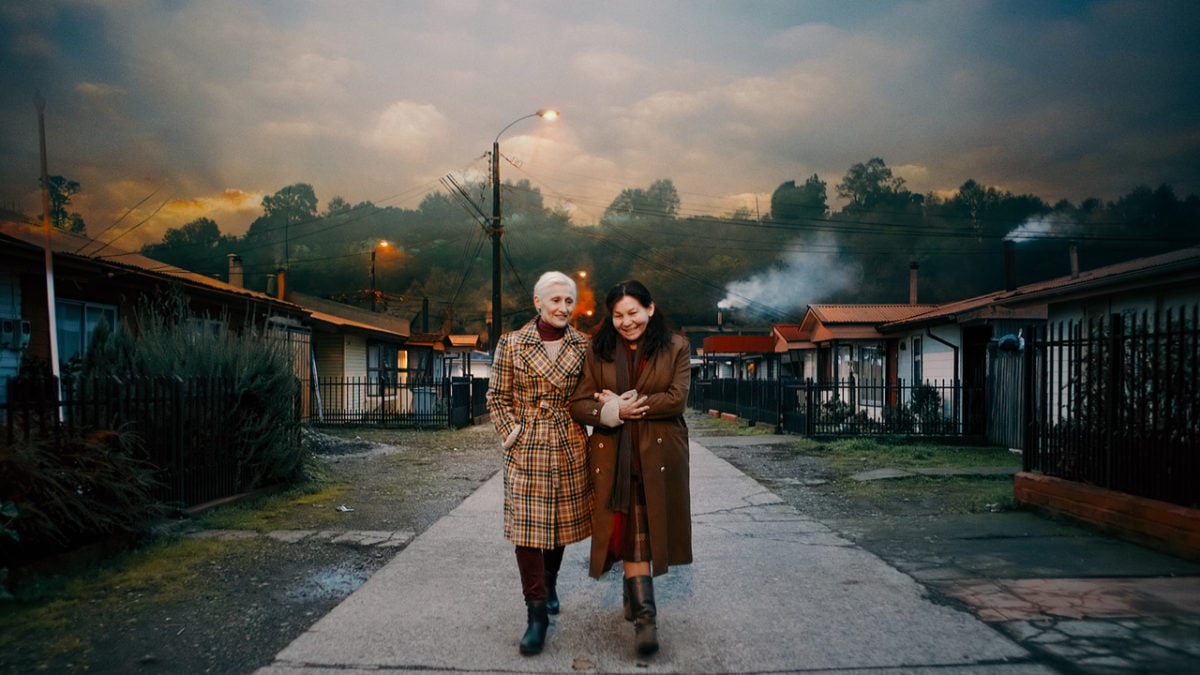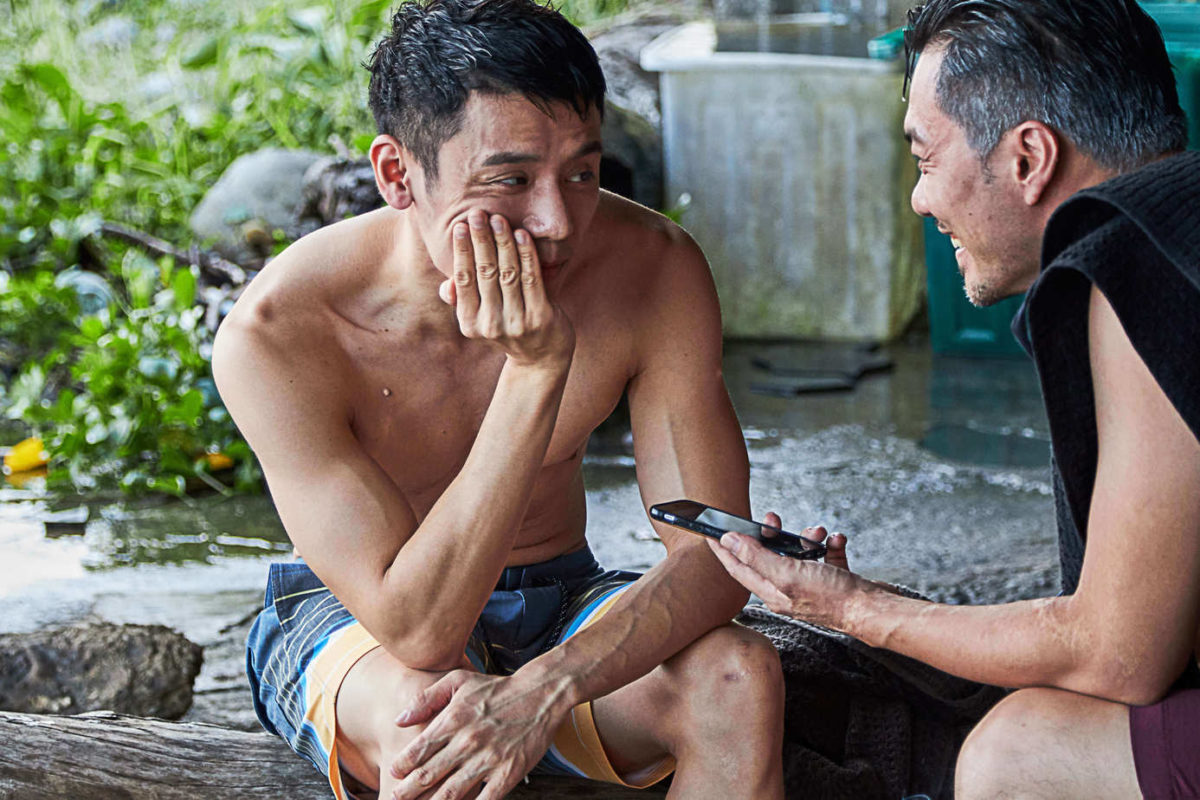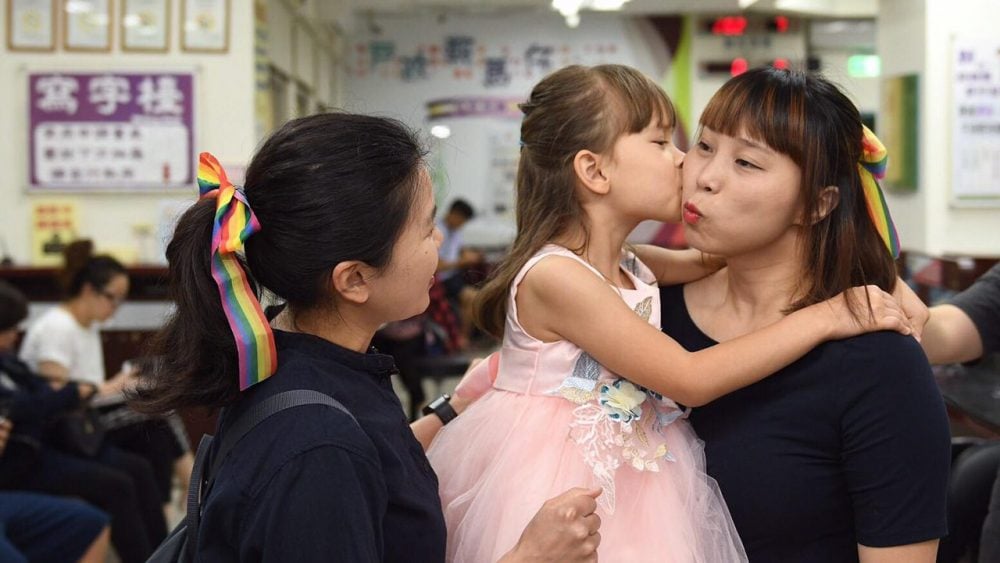This is the third piece in The Daily’s Frameline44 coverage. This piece covers select films from the festival that center on the lives of queer folks as they intertwine with their families’ lives. Due to film embargos, some of The Daily’s coverage will be released upon their respective digital or cinematic releases.
“Taiwan Equals Love” (2020, Yan Zhexuan (Sophia Yan), Chinese title: “同愛一家”)
“Taiwan Equals Love” follows three couples — Jovi and Mindy, Tien-Ming and Hsiang, and Gu and Shinchi — as they navigate being queer in Taiwan and advocating for their rights during Taiwan’s overhaul of its marriage equality laws. Jovi and Mindy are two women who live in Taiwan with their daughter, Tien-Ming and Hsiang are two men who have cared for one another for decades and Gu and Shinchi are two young men who also run a small business together.
“Taiwan Equals Love” is a documentary account of Taiwan’s most recent marriage equality set during a period between 2017 (when the Taiwanese Constitutional Court ruled that the existing marriage law was unconstitutional) and 2019 (when the Taiwanese government officially passed a law granting same-sex couples nearly all the same rights heterosexual couples have). In this time, the Taiwanese legislative government was embroiled in a battle to actually pass a bill that amended the law and was given exactly two years to do so, otherwise the marriages of same-sex couples would simply be in effect automatically.
The film carefully traces each couple’s landmarks across this fight, each varying in capacity for how much they can partake in advocacy. Jovi and Mindy take on more active roles, taking part in LGBTQ rights organizations and protests; Tien-Ming and Hsiang are busy taking care of each other as Hsiang’s health is failing; and Gu and Shinchi spend a majority of their time running their small business selling products online. “Taiwan Equals Love” casts an intimate eye across each couple’s struggle while revealing their own unique investment in the fight, and it’s impossible not to become attached as a viewer, either. Jovi and Mindy want to be able to officially get married so that they can both be legal mothers to their daughter Aliy. Tien-Ming and Hsiang need to be able to ensure passage of possessions if Hsiang’s health fails. Gu and Shinchi want to be able to stay together in Taiwan, but Gu is from Macau and, under existing laws, cannot stay in Taiwan permanently.
While “Taiwan Equals Love” is people-oriented in nature, it also outlines the history and policy struggles of this two-year period. This includes a number of referendums voted on that restricted the recognition of same-sex marriages, pressed by outspoken anti-LGBTQ organizations. Despite being considered quite progressive in Asia, there was, and continues to be, plenty of opposition toward marriage equality in Taiwan. Nonetheless, the court upheld its original ruling in spite of the attempts to strike it down. “Taiwan Equals Love” is able to strike the right balance between celebrating Taiwan’s advances while still acknowledging the distance it still needs to go.
“Forgotten Roads” (2020, Nicol Ruiz Benavides, Spanish title: “La Nave del Olvido”)

It’s delightful to see films featuring older queer couples, and “Forgotten Roads” does just that. Taking place in a small town in Chile, the film follows Claudina after the death of her husband, which has left her alone and unsure of what to do. As such, she moves in with her daughter (who has a teenage daughter and young son of her own) and spends days passing the time and trying to keep herself distracted.
Claudina quickly hits it off with Elsa, a cool gray-haired woman, and an elder love blossoms in small-town Chile, even while rumors fly. Elsa seems to know the ins and outs of the local queer scene better than anyone else and re-instills love in Claudina. (They even go to the local makeshift queer club together! It’s adorable.)
Claudina’s daughter cannot stand the gossip and begins to pry at Claudina’s relationship with Elsa, while Claudina’s grandson doesn’t seem to care and Claudina’s granddaughter seems to enjoy sharing in her secret and perhaps expresses some solidarity with Claudina herself.
The film (somewhat inexplicably) takes place in an alternate reality in which aliens and their UFOs have arrived at Earth and constantly touch down in Earth’s atmosphere, accompanied by bright lights and sounds at night signaling their periodic arrival. Claudina is frequently transfixed by these lights; this serves as an allegory for the blissful distraction that Elsa’s love provides for her, as fleeting as a spaceship flying through the night. (See the Spanish title for a good hint: with my barely scratch-the-surface Spanish skills, “La Nave del Olvido” loosely translates to the “UFO/spaceship of the forgotten.”)
At only 71 minutes, “Forgotten Roads” is quite short and has much more room to play. We never truly see the spaceships, but they’re spoken about everywhere; the allegory doesn’t quite land, but at the same time, it doesn’t detract from the narrative, either. “Forgotten Roads” doesn’t go anywhere particularly new, losing out on a fascinating opportunity to dive deeper into the UFO metaphor and never does. Nevertheless, sometimes it’s just nice to sit back and watch a story of a queer elder in love that was clearly crafted with care.
“My Soul is Made of Love” (2019, Chen Ming-Lang, Chinese title: “我的靈魂是愛做的” and also known as “The Teacher”)

“My Soul is Made of Love” is set during the same period as “Taiwan Equals Love,” but this time, as a fictionalized account. In a literal translation of its Chinese title, the bright-eyed Kevin (Oscar Chiu) falls madly in love with an older man, Jin-Wu (Chang Chin-Hao). However, Jin-Wu fails to tell Kevin that he is still deeply entrenched in his ex-wife’s (Winnie Shih-Ying Chang) life because they run a small factory together — and that they’re technically still married, even if they’ve separated. (In one incredibly uncomfortable scene, Kevin attends a dinner with Jin-Wu, his wife and a huge chunk of extended family as the awkward trio tries to play it cool.)
Jin-Wu also fails to tell Kevin that he is HIV positive until much later in the relationship, making the latter fearful for himself and Jin-Wu when he finds out. Although the film doesn’t handle HIV/AIDS stigma particularly gracefully, it does successfully show perhaps one illustration of being a queer teacher in Taiwan, even as progressive as it is within Asia. While rumors of him being gay lead the students to poke and prod at him, it’s his hypothetical HIV diagnosis that threatens his position as a teacher and the school board very intrusively demands that he have a test in order to “prove” himself. Within the confines of the matter-of-fact school administration setting, their nonchalant discussion of a teacher’s job on the line is more terrifying than anything else.
But Kevin’s relationships with his supportive mother and friends is heartwarming, with his mother merely caring that he’s staying healthy and happy with Jin-Wu and his friends keeping him sane as he navigates the toxic school environment and his rocky relationship with Jin-Wu. The film’s standout performer, although she has very little screen time, is Winnie Shih-Ying Chang who, for this role, won Best Supporting Actress at the 2019 Golden Horse Awards, often described as the Chinese-language Oscars. Chang brings her character to life in a number of bold scenes, herself a wife scorned as her husband fails to communicate and the naive Kevin issues a number of unreasonable requests. While “My Soul is Made of Love” is not perfect, strong performances in the three leading roles prop up the film as a welcome introduction to current queer Taiwanese cinema.
Contact Olivia Popp at oliviapopp ‘at’ stanford.edu.
